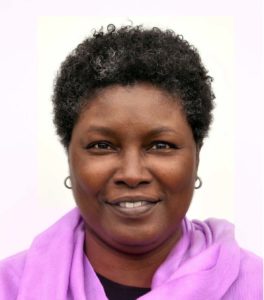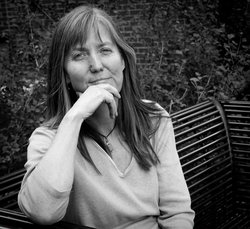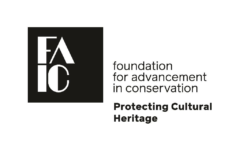
As caretakers of diverse collections small and mid-sized institutions often find themselves dealing with emotional ramifications of managing cultural objects that can evoke a traumatic response in our audiences, communities, and staff. In this webinar you will hear speakers present on how their institutions dealt with the acquisition, terminology, and community reactions to these types of objects.
Reneé S. Anderson will be speaking about the acquisition of a “traumatic object” (Emmett Till casket) and steps taken by National Museum of Africa American History and Culture (NMAAHC) to ensure staff, contractors, and visitors were well-prepared and supported when working with the object and in planning for its exhibition.
Lydia Four Horns will be presenting on objects that have the capacity to hold cultural memory and historical trauma that may cause trauma but also invoke healing. She will be specifically discussing the journey and repatriation of Chief Hollow Horn Bear’s shirt to his great-grandson Duane Hollow Horn Bear from the Weltkulturen Museum in Germany to the shirt’s origins in what is now called South Dakota.
Bonnie Clark will be speaking on the co-curated Amache, the Japanese War Relocation Authority incarceration camp in Colorado exhibit including issues around terminology with potentially traumatic collections, working across generational and cultural differences through object engagement, and using poetry to provide an emotional outlet. Additionally Dr. Clark will speak about collaborative research (which is both archaeological and museum-focused) has contributed to a broader coalition for preserving a site of trauma
Presenters
 Reneé S. Anderson, Ph.D., Collections Manager Smithsonian’s National Museum of African American History and Culture Focusing on special projects. NMAAHC Treasures national community program presenter and reviewer. NMAAHC Internship mentor. Representative for Mellon Foundation Smithsonian Institution Pan-Institutional Undergraduate Conservation Internship Program for Underrepresented Groups. Serves on Smithsonian Institution, Connecting to Collections Care Diversity and Inclusion Working Group. SI Preparedness and Response in Collections Emergencies member; SI Collections Collaboration Community Diversity, Equity, Access, and Inclusion working group; SI African American Association Affinity Group lead team member, and FAIC Professional Development Working Group and Outreach Advisory Group. Association of African American Museums Andrew W. Mellon grant working group member.
Reneé S. Anderson, Ph.D., Collections Manager Smithsonian’s National Museum of African American History and Culture Focusing on special projects. NMAAHC Treasures national community program presenter and reviewer. NMAAHC Internship mentor. Representative for Mellon Foundation Smithsonian Institution Pan-Institutional Undergraduate Conservation Internship Program for Underrepresented Groups. Serves on Smithsonian Institution, Connecting to Collections Care Diversity and Inclusion Working Group. SI Preparedness and Response in Collections Emergencies member; SI Collections Collaboration Community Diversity, Equity, Access, and Inclusion working group; SI African American Association Affinity Group lead team member, and FAIC Professional Development Working Group and Outreach Advisory Group. Association of African American Museums Andrew W. Mellon grant working group member.
 Bonnie Clark is a Professor in the University of Denver’s Anthropology Department. A professional archaeologist since 1990, Dr. Clark’s work has focused on using the tangible past– artifacts, architecture, settlement patterns–to tell a more inclusive history of western North America. Dr. Clark’s research interests include the relationships between material culture, ethnicity, and gender; cultural landscapes; community-engaged research; and heritage management.
Bonnie Clark is a Professor in the University of Denver’s Anthropology Department. A professional archaeologist since 1990, Dr. Clark’s work has focused on using the tangible past– artifacts, architecture, settlement patterns–to tell a more inclusive history of western North America. Dr. Clark’s research interests include the relationships between material culture, ethnicity, and gender; cultural landscapes; community-engaged research; and heritage management.

Lydia Four Horns is an Arts Consultant working with tribal communities and organizations with a central focus on arts-building, cultural preservation within strategic planning and development. She has a BFA from Pratt Institute and an AFA in Museum Studies and Three-Dimensional Design from the Institute of American Indian Arts. Ms. Four Horns is a recent grant recipient of the Metropolitan Regional Arts Council and the Tiwahe Foundation for Cultural Preservation in revitalizing traditional Indigenous weaving of the Midwest.
Resources
- C2C Approaching Collections that Evoke Trauma Resource List
- C2C Approaching Collections that Evoke Trauma – Anderson Presentation
- C2C Approaching Collections that Evoke Trauma – Clark Presentation
- C2C Approaching Collections that Evoke Trauma – Four Horns Presentation




